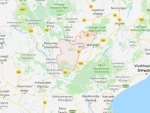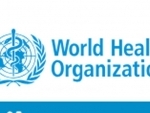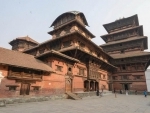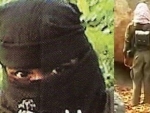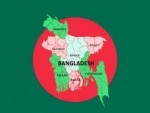At least six persons – among them three Chinese engineers – were injured in a suicide attack on a bus in the Dalbandin area of Chagai District in Balochistan in the morning of August 11, 2018. The bus carrying 18 Chinese engineers was being escorted by Frontier Corps (FC) troops to the Dalbandin airport from the Saindaik copper and gold mines when a suicide bomber tried to drive his explosives-laden vehicle into the bus. “The explosives-laden vehicle exploded near the bus on Quetta-Taftan Highway – and as a result three Chinese engineers, two FC soldiers and the bus driver were injured,” an unnamed Levies official stated. Saifullah Khatiran,Deputy Commissioner of Chagai District, disclosed that the engineers were working on the Saindak project, a joint venture between Pakistan and China to extract gold, copper and silver from an area close to the border.The three injured Chinese engineers were identified as Huo Xiaohu, Shi Jiangpeng and You Riwei. The suicide bomber was killed. All the Chinese engineers were later sent to Karachi.
On August 13, 2018, International Crimes Tribunal-1 (ICT-1) sentenced to death Mohamad Esahaq Shikder (83), Abdul Goni Hawlader (72), Mohamad Awal aka Awal Moulavi (69), Mohamad Abdus Sattar Pada (65) and Solaiman Mridha aka Soleman Mridha (86) for committing crimes against humanity in the Patuakhali District during the Liberation War in 1971. They were found guilty of two charges for which they were indicted on March 8, 2017. All the five men were handed death sentence for the murder of 17 villagers after torturing them in confinement and setting fire to at least 12 houses after looting them in Itbaria, a village in the Patuakhali District on May 4, 1971. They were also given death sentence for the abduction of 15 women from the same Itbaria village on the same day, taking them to the Circuit House Army camp where they were tortured and raped for 10 days until May 14, 971. All the convicts were involved with the Muslim League (ML) and are behind bars.
A team of District Reserve Guard (DRG) personnel of the Chhattisgarh Police killed at least 15 Communist Party of India-Maoist (CPI-Maoist) cadres in an encounter in a forested area between Golapalli and Konta, near Nalkatong village in Sukma District. Chhattisgarh, on August 6, 2018. Special Director General (SDG), anti-Naxal[Left Wing Extremism, LWE] Operations, Durgesh Madhav Awasthi, confirmed that a ‘militia platoon commander’, identified as Vanjam Hunga, was among those killed, while the identities of rest of the deceased Maoists were yet to be ascertained. Four Maoists, including a woman, were also arrested during the operation. Of the three male Maoist cadres arrested, one Madkami Deva is an ‘area committee member’ and carried a bounty of INR 500,000. The identities of the other three, including the woman cadre, were yet to be ascertained. The slain and arrested Maoists belonged to three separate militia formations–the Gompad militia, Balatong militia and Belponcha militia –which are active in the Konta, Golapalli, and Bhejji areas in Sukma.
The efforts of the military to steer the elections against PML-N and PPP, the two most popular political formations in Pakistan, and in favour of a possible coalition led by Imran Khan's PTI and including a range of radical Islamist formations, has enormously destabilised both the political and extremist landscape across the country. Under the prevailing situation, a dramatic rise in violence is not unexpected.
Urgent action is needed to find, test and treat the missing millions suffering viral hepatitis
Millions of people across the world and in the WHO South-East Asia Region are infected with viral hepatitis without knowing and without receiving treatment. Both worldwide and in the Region less than one in 10 infected people are estimated to know their status, while less than 10% of those who do know their status are receiving appropriate treatment.
On July 2, 2018, the Parliament of Nepal endorsed a Bill tabled on June 28, 2018, to extend the terms of two transitional justice bodies – the Truth and Reconciliation Commission (TRC) and the Commission of Investigation on Enforced Disappeared Persons (CIEDP). With the passage of the Bill the terms of the two bodies were formally extended till February 7, 2019. TRC and CIEDP were formed on February 7, 2015, in the spirit of the Interim Constitution of 2007 and the Comprehensive Peace Agreement (CPA) of 2006, to probe instances of serious violations of human rights and determine the status of those who disappeared in the course of the armed conflict between the State and the then Communist Party of Nepal-Maoist (CPN-Maoist), between February 13, 1996, and November 21, 2006. The Commissions were formed with a two-year term, and were awarded their first one-year extension on February 7, 2017. Their extended tenure expired on February 7, 2018.
On June 28, 2018, Zeliangrong United Front (ZUF) militants shot dead a civilian, identified as Lanshinthui Kamei, at Gairilong Luangrang village in the Noney District of Manipur. The militants alleged that Kamei was an informer for the Security Forces (SFs).
Within the logic of the war they are waging, executing dramatic retaliation for security forces’ success in Gadchiroli will certainly be high among their priorities. Revenge attacks may come wherever and whenever the opportunity presents itself.
The Media in Pakistan has long faced the brunt of the all-powerful military establishment. Of late, with elections around the corner, there has been an intensification of the crackdown against journalists and news establishments. On June 6, 2018, The New York Times thus wrote
On May 10, 2018, the International Crimes Tribunal-1 (ICT-1) awarded the death sentence to war criminal Reaz Uddin Fakir (69), a member of the Islami Chhatra Sangha, the then student wing of Jamaat-e-Islami (JeI), for crimes committed during the Liberation War of 1971. According to the verdict, all the four charges brought against Reaz had been proved beyond any shadow of doubt. He was handed death sentences on two charges and a jail term until his death on two other charges. Reaz received a death sentence for murdering eight Hindu villagers in village Rishipara, Mymensingh District, on November 5, 1971. He was awarded the second death sentence for his complicity in murdering 43 villagers at Asimbazar, Bashdi and Valukjan, all under the Mymensingh District, on November 13, 1971. Reaz was handed a life term until death for murdering Abdul Mazid, Shahidullah Master, Jamshed Ali and two other unknown men at the Phulbaria town of Mymensingh District on August 25, 1971. He received the second life term until death for murdering three siblings, Altaf Ali Mondol, Taleb Ali Mondol and Sekander Ali Mondol, of village Bhalukjan in Mymensingh District on November 21, 1971.
On April 4, 2018, Parliament comfortably defeated a No-Confidence Motion brought by the Joint Opposition group led by former President Mahinda Rajapaksa against Prime Minister Ranil Wickremesinghe. Of the 225 Members of Parliament (MPs), 122 MPs – 104 of the United National Party (UNP), 16 of the Tamil National Alliance (TNA), and one each of the Sri Lanka Muslim Congress (SLMC) and Eelam People's Democratic Party (EPDP) – voted against the No-Confidence Motion. 76 MPs – 70 of the Sri Lanka Freedom Party (SLFP) and six of the Janatha Vimukthi Peramuna (JVP) – voted in support of the No-Confidence Motion. Another 26 MPs including 25 SLFP MPs and one MP of the UNP absented themselves from the House during the vote. Speaker Karu Jayasuriya, a UNP MP, did not vote. Significantly, it was the first No-Confidence Motion brought against the current National Unity Government, formed on August 20, 2015.
Balochistan: Insecure Security
At least 10 Policemen were killed and another 15 injured in two separate suicide attacks in Quetta, the provincial capital of Balochistan, on April 24, 2018. In the first incident, a suicide bomber drove his motorcycle into a Police truck, on Airport Road, killing seven Balochistan Constabulary. According to law enforcement sources, an estimated 20 kilograms of explosives were used in the attack. In a separate incident, three Frontier Corps (FC) personnel were killed and six were injured in the Mian Gundi area, when two suicide bombers targeted an FC check post in an attempt to enter the FC camp. Hizbul Ahrar, a splinter faction of Jamaat-ul-Ahrar (JuA), claimed responsibility for both the attacks.
Pakistan: Minorities under Collusive Terror
At least two members of the Christian community, Rashid Khalid and Azhar Iqbal, were killed and another five were injured in a firing incident near a church in the Essa Nagri area of Quetta, the provincial capital of Balochistan, on April 15, 2018. Quetta’s Deputy Inspector General (DIG) of Police, Abdur Razzaq Cheema, stated that the incident occurred when worshippers were leaving after attending the Sunday service at the church. Islamic State (IS, also Daesh) claimed responsibility for the attack through the Amaq ‘news agency’, its propaganda wing.
Andhra Pradesh: Collapsing Movement
A woman cadre of the Communist Party of India-Maoist (CPI-Maoist), identified as Irothu Sundaramma akaSadhana, carrying a reward of INR one million on her head, surrendered before the Superintendent of Police (SP), C.M. Trivikrama Varma, in Srikakulam District on March 17, 2018. Sadhana was involved in a number of Maoist-linked offenses, including an attack at National Aluminium Company (NALCO) Company at Damanjodi in the Koraput District of Odisha on April 12, 2009, in which 11 Central Industrial Security Force (CISF) personnel were killed.
Tripura once again remained as the most peaceful among the seven troubled States of India’s Northeastern region, in terms of insurgency-related violence, as the State Government continued the stabilization process through 2017. In 2017, the entire Northeastern region registered its lowest insurgency-linked fatalities since 1992 (103 – including 34 civilians, 13 Security Force (SF) personnel and 56 militants; SATP data available since 1992). Tripura and Mizoram did not account for a single such fatality in 2017.







